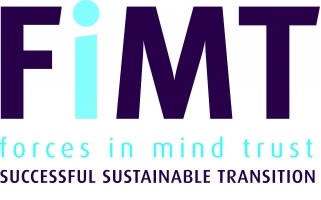A new report titled ‘Benefit not Burden’ commissioned by the Forces in Mind Trust (FiMT) and conducted by Shared Intelligence, calls for increased awareness around the benefits to businesses, public and voluntary sector organisations in the UK in signing up to the Armed Forces Covenant and being a veteran friendly employer.
Less than a quarter (24%) of the organisations surveyed in FiMT’s research had heard of the Armed Forces Covenant and only 8% had signed it. The report finds that the smaller an organisation is, the less likely it is to be aware of the Covenant or to have signed it or taken any action.
This lack of awareness, coupled with the lack of understanding around the potential disadvantage facing members of the Armed Forces Community and knowing what type of action an organisation can take, is a significant barrier to organisations signing and enacting the Armed Forces Covenant.
The report launched today, Tuesday 22nd January, at an event in the House of Commons, to an audience of MPs, Ministry of Defence representatives, and public sector and business leaders. It outlines straightforward steps to encourage more organisations across the UK to sign the Covenant, including supporting trade associations and membership bodies to promote the Covenant; they have a key role in encouraging organisations to sign the Armed Forces Covenant and highlighting its benefits.
Most organisations surveyed in the report that are aware of the Covenant had heard about it from a customer or client (23%), an individual within the organisation (22%) or another organisation within a supply chain (17%). Just 3% of organisations cite trade associations as the reason they are aware of the Covenant, and only 10% cite the Ministry of Defence.
Other recommendations in the report include mobilising the voice of the Armed Forces Community to encourage the organisations they work with to sign the Covenant, and encouraging local authorities, other public bodies and large businesses to use their supply chains and procurement processes to encourage businesses and other organisations to sign.
FiMT’s report provides evidence that organisations which have signed the Armed Forces Covenant are more likely to see direct benefits of employing ex-Service personnel, including recruiting or retaining skilled staff and enhancing a company’s reputation. 28% of organisations surveyed in the research claimed that they are likely to sign the Covenant over the next year.
Ray Lock, Chief Executive of the Forces in Mind Trust, said:
“Ex-Service personnel offer a substantial premium of capability to a prospective employer, and a commercial supplier can reap the rewards of customer loyalty and brand reputation by offering the Armed Forces Community advantageous access to goods and services, while ensuring their unique background in the military does not create disadvantage.
“The research in this report shows that there are many organisations who wish to support the Armed Forces Community, but who lack the knowledge and understanding of how to do so. It has identified some straightforward steps that could be taken relatively easily, and which would result in a substantial improvement in how the nation fulfils its side of the Covenant.”
Phil Swann, Executive Chair of Shared Intelligence, said:
“Our research identified several ways of increasing awareness of the Covenant, including the role of trade bodies, supply chain relationships and mobilising the voice of the Armed Forces Community itself. The best ambassadors for the Covenant are businesses which have benefitted from delivering it.”
ENDS
NOTES TO EDITORS:
Ray Lock is available for interview. To arrange please contact Tina McKay, Communications Officer at FiMT on co@fim-trust.org or on 07956 101132 or 0207 901 8916.
About the Forces in Mind Trust (FiMT):
FiMT came about from a partnership between the Big Lottery Fund (‘the Fund’), Cobseo (The Confederation of Service Charities) and other charities and organisations. FiMT continues the Fund’s long-standing legacy of support for veterans across the UK with an endowment of £35 million awarded in 2012. http://www.biglotteryfund.org.uk/.
The mission of FiMT is to enable ex-Service personnel and their families to make a successful and sustainable transition to civilian life. FiMT delivers this mission by generating an evidence base that influences and underpins policy making and service delivery, and by strengthening the Armed Forces charities sector through collaboration and leadership, and by building its capacity.
FiMT awards grants (for both responsive and commissioned work) to support its change model around 6 outcomes in the following areas: Housing; Employment; Health and wellbeing; Finance; Criminal Justice System; and Relationships. All work is published in open access and hosted on the Forces in Mind Trust Research Centre’s Veterans and Families Research Hub https://www.vfrhub.com/. A high standard of reportage is demanded of all grant holders so as to provide a credible evidence base from which better informed decisions can be made.
Useful links
Website: www.fim-trust.org
Reports: www.fim-trust.org/reports/
Who we have helped: www.fim-trust.org/who-we-have-helped/
Twitter: @FiMTrust
About the Armed Forces Covenant:
The Armed Forces Covenant is a promise by the nation ensuring that those who serve or who have served in the armed forces, and their families, are treated fairly. The Covenant focuses on helping members of the armed forces community have the same access to government and commercial services and products as any other citizen. This support is provided in a number of areas including: education and family well-being, having a home, starting a new career, access to healthcare, financial assistance and discounted services.
About Shared Intelligence:
Shared Intelligence is a public policy consultancy which uses data and evidence and works with local councils and their partners, national government bodies, and service-focused national charities: https://sharedintelligence.net/
About NatCen
NatCen is Britain’s largest independent social research agency. For the last 40 years we’ve worked on behalf of government and charities to find out what people really think about important social issues and how Britain is run.
http://www.natcen.ac.uk/

















